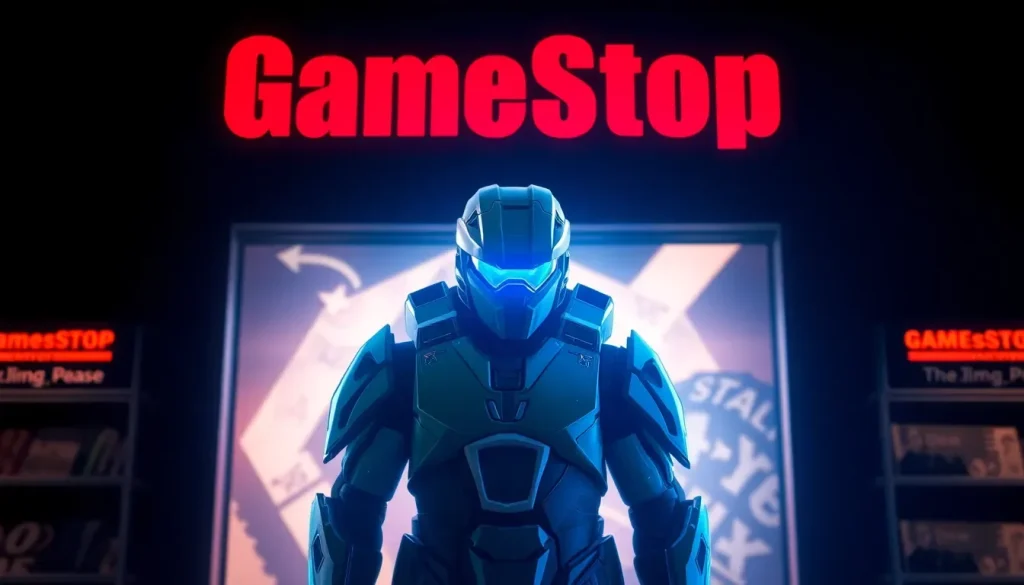GameStop Declares Console Wars Ended After Halo on PS, White House Reacts With AI Trump in Spartan Armor

The gaming community often finds itself at the intersection of cultural phenomena and political commentary, especially when it comes to the legendary console wars. Recently, a significant announcement shook the foundation of this rivalry: the arrival of Halo: Campaign Evolved on PlayStation. This unexpected move not only signifies a new era for cross-platform gaming but also sparked reactions from various quarters, including a surprising nod from the White House.
GameStop, a retailer known for its deep roots in the gaming industry, proclaimed the console wars over with a statement that labeled the rivalry as “petty.” While the sentiment resonates with many gamers tired of divisive brand loyalty, it overlooks a rich history of competition that predates the Xbox and PlayStation era. This article delves into the intricacies of console wars, explores the implications of the recent Halo announcement, and examines the surprising involvement of political entities in gaming discourse.
The End of Console Wars? A Closer Look
GameStop's declaration of the end of console wars raises eyebrows. The retailer attributes the start of these wars to the launch of the original Xbox and Halo: Combat Evolved. However, console wars began much earlier, dating back to the fierce competition between Nintendo and SEGA. This rivalry saw players taking sides, often leading to heated debates about the merits of each console.
Historically, console wars can be characterized by:
- Exclusive titles: Gamers often choose sides based on exclusive game releases that define a console's identity.
- Pricing strategies: The affordability of consoles plays a crucial role in consumer choice.
- Brand loyalty: Many gamers develop a strong emotional connection to a brand, influenced by marketing and community engagement.
As gaming has evolved, so too have the dynamics of these wars. The rise of digital distribution and cross-platform play has diminished the relevance of strict console loyalty. Nonetheless, the announcement of Halo's arrival on PlayStation marks a significant shift that could redefine these allegiances once again.
The White House's Unexpected Response
In a surprising twist, the White House responded to GameStop's announcement with an AI-generated image of former President Trump dressed in Spartan armor, complete with an energy sword. This image, captioned "Power to the players," highlights a unique intersection of politics and gaming culture.
Key points to consider about the White House's engagement include:
- AI representation: The use of AI in generating political imagery raises questions about authenticity and detail accuracy.
- Cultural commentary: The phrase "Power to the players" appears ironic, considering previous political stances on video games.
- Visual details: The AI-generated image mistakenly featured only 40 stars on the American flag, a detail that reflects a lapse in attention to accuracy.
This response reflects a broader trend where political figures attempt to engage with popular culture to foster relatability. However, it poses the question: How effective is this approach when it lacks attention to detail?
Halo's Cultural Significance
The Halo franchise holds a significant place in gaming history, being one of the flagship titles for Xbox. Its narrative depth and gameplay mechanics have influenced countless titles across generations. The recent announcement of Halo: Campaign Evolved being available on PlayStation not only enhances accessibility but also signifies a growing trend towards inclusivity in gaming.
Some aspects of Halo's cultural impact include:
- Narrative depth: Halo's storytelling has set a benchmark for narrative-driven games.
- Community engagement: The franchise has fostered a dedicated community that spans across platforms.
- Esports influence: Halo's competitive scene has paved the way for many esports tournaments, influencing the competitive gaming landscape.
This move may encourage other developers to consider cross-platform releases, fostering a more unified gaming community.
The Irony of Political Commentary on Gaming
The White House's previous stances on video games, particularly under Trump's administration, often leaned towards criticism. In 2019, Trump notably linked video games to the glorification of violence in society, a perspective that many in the gaming industry found problematic. This contradiction raises questions about the authenticity of the current engagement with gaming culture.
Inconsistencies can be observed, such as:
- Past criticisms: Trump's remarks about video games as a contributing factor to violence starkly contrast with the current celebration of gaming culture.
- Economic impact: Tariffs imposed during the administration have affected the cost of gaming hardware, contradicting the "power to the players" message.
- Public perception: Such political maneuvering can alienate both gamers and political allies who view the administration as opportunistic.
This situation highlights the need for a more nuanced understanding of the relationship between politics and gaming culture.
The Future of Gaming and Console Rivalries
The gaming landscape is continuously evolving, and with the announcement of Halo on multiple platforms, the future of console rivalries appears to be more collaborative than combative. The potential for cross-platform play could lead to a more unified approach to gaming, encouraging developers to create experiences that are accessible to all players, regardless of their preferred console.
In this brave new world, gamers can expect:
- Increased collaboration: Developers may prioritize cross-platform compatibility, enhancing player experiences.
- Diverse gaming communities: The removal of console barriers can lead to richer, more diverse online communities.
- Innovation in game design: Competitive spirit can shift focus from console loyalty to the quality of games themselves.
This shift could ultimately redefine the narrative of console wars, leading to a gaming ecosystem that prioritizes player experience over brand allegiance.
As the landscape changes, it will be fascinating to see how both gamers and politicians adapt to this new reality. Innovations and cultural shifts will undoubtedly continue to challenge the status quo, paving the way for a more inclusive and collaborative gaming environment.
To get a better sense of how these dynamics play out in real-time, check out this insightful video that explores the implications of recent announcements in the gaming world:




Leave a Reply